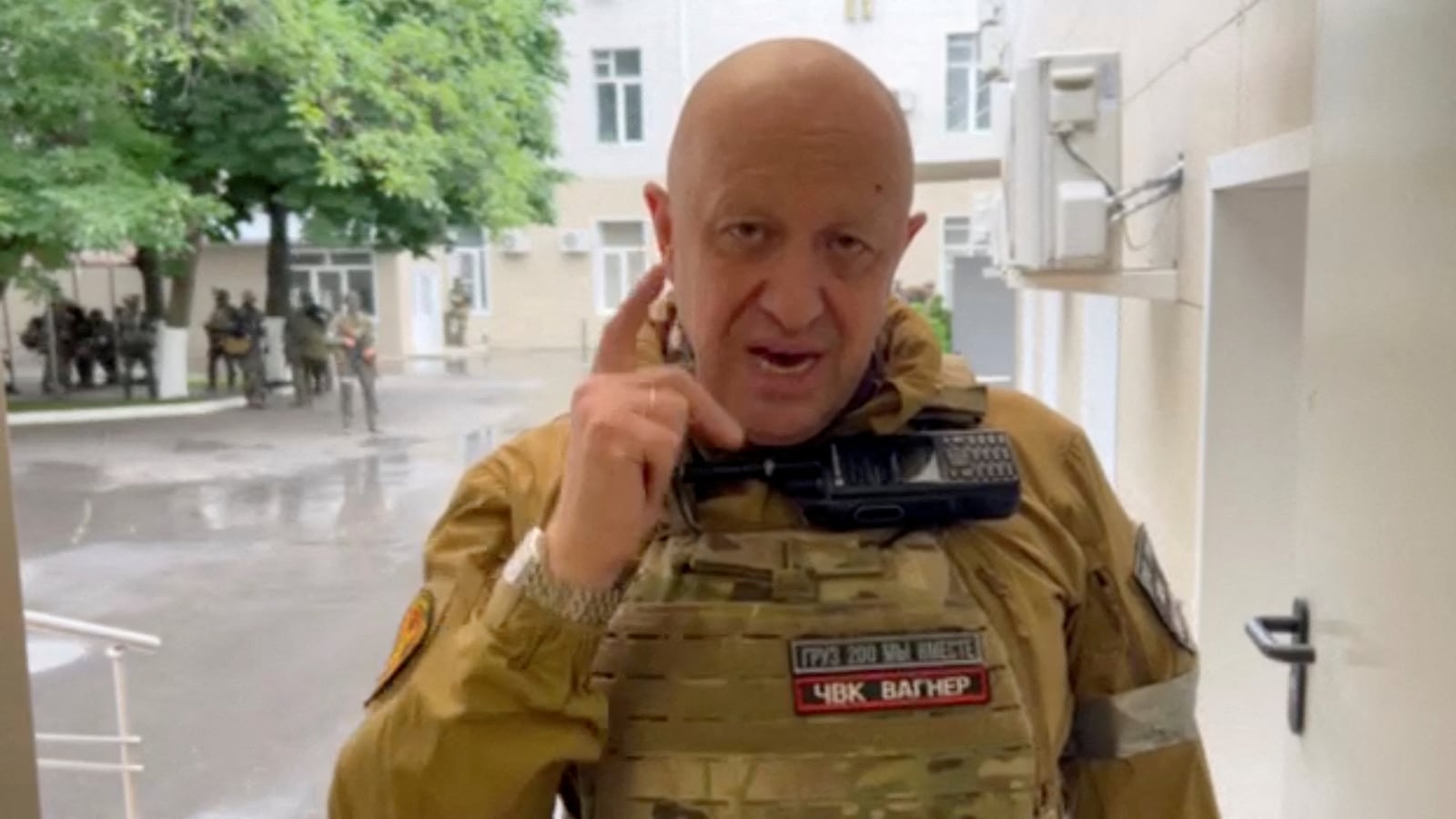The failed coup by Yevgeny Prigozhin and his private army, known as the Wagner Group, shocked the nation, with even the most dedicated Kremlin propagandists criticizing the deal that allowed the plotters to walk free and admitting that it made Russia look weak. Belarusian President Aleksander Lukashenko added to the national humiliation, by portraying himself as a hero who single-handedly negotiated an end to the mutiny, while Kremlin officials couldn’t even get Prigozhin to pick up the telephone.
Days after the failed insurrection, Putin’s propagandists are contorting themselves into pretzels with a new narrative that is drastically different from their first reaction. Decorated state TV host Vladimir Solovyov, who is personally protected by the Russian National Guard as a national treasure, admitted being in contact with members of the administration of Russian President Vladimir Putin. He is now guiding participants of his show, The Evening With Vladimir Solovyov, into downplaying not only Lukashenko’s contribution, but the significance of the failed rebellion itself.
Appearing on Solovyov’s show on Monday, political scientist Yevgeny Satanovsky said: “Regarding the situation that some are calling a putsch or a mutiny. What putsch? What mutiny?” He explained that the armed uprising was merely an ordinary internal turbulence, using the Russian word “smuta,” which translates as strife or turmoil.
“There is nothing exceptional about that,” Satanovsky asserted. “This is merely a usual dust-up among the boyars [members of the ruling nobility in medieval times] that is traditional in Russia—and no more than that!” Satanovsky and Solovyov waxed metaphorical, comparing armed stand-off to a casual disagreement about turnips.
Satanovsky shrugged off the meaning of the events that were initially described by other state TV propagandists as historic: “This sort of thing has happened hundreds of times.” Solovyov chimed in: “Note that it’s always about turnips and not about love for the Motherland! It’s always about some business fund and not defending your Fatherland.” By referring to turnips and business funds, the talking heads intimated financial interests, which Putin stressed were at the heart of Prigozhin’s gripe with authorities.
During a televised appearance at a military gathering, Putin alleged that the Wagner Group was paid more than 86 billion rubles (over $1 billion) by the Russian government and Prigozhin’s Concord Group earned 80 billion rubles ($941 million) from a contract for supplying food items to the military. Setting the stage for an investigation, Putin added: “I hope they didn’t steal anything. Rather, I hope they didn’t steal too much.”
Russian authorities and talking heads fully realize the danger of Prigozhin’s mass appeal, with his pre-mutiny media blitz that underscored the disparity between the way Russian elites protect their own safety and a lavish lifestyle, as opposed to the sacrifices that are demanded from everyday citizens. His statements that described Putin’s motives for launching the invasion as “lies” were equally significant—and dangerous for the Russian regime.
Prigozhin’s expletive-laden diatribes resonated with average Russians and Wagner Group fighters were welcomed by locals in the Russian city of Rostov-on-Don. Putin’s propagandists desperately tried to flip the narrative, by claiming that the residents of Rostov didn’t cheer the Wagnerites, but merely celebrated their departure from the city. During Solovyov’s show, political scientist Vladimir Kornilov dismissed Western reporting on the matter as “fake news” and alleged that all of it was simply made up. He comically claimed, “Almost all Western media came out with front-page photos of the Rostov residents hugging and kissing the Wagnerites, claiming that it means they supported them. Of course, no one noted that they were merely seeing them off, celebrating that the Wagner Group was leaving Rostov!”
Lukashenko’s involvement, which was initially cheered as wise and crucial, is likewise being downplayed, since it came too close to outshining Putin—a cardinal sin that is not allowed by the state media. Appearing on The Evening With Vladimir Solovyov, State Duma member Mikhail Delyagin said: “President of Belarus Lukashenko saved Russia in its current state. Period.” This statement was met with dirty looks from fellow panelists. Andrey Sidorov, Deputy Dean of world politics at the Moscow State University, incredulously asked: “Saved?” Delyagin got the message and corrected himself: “OK, he made a significant contribution to resolving the crisis.”
Ivan Starodubtsev, an expert on Russian-Turkish relations, further cleaned it up: “I disagree that Lukashenko was the savior, I believe Putin was!”






